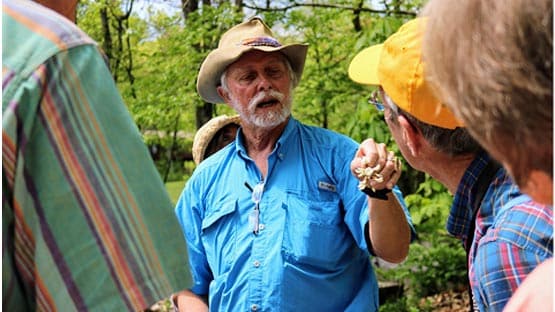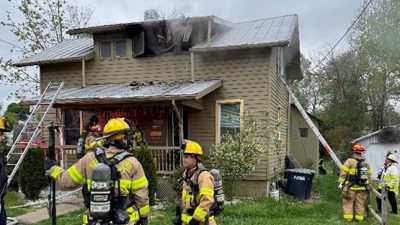
Three Virginia health systems will serve together as one of eight groups in the U.S. to conduct groundbreaking research for the Cancer Screening Research Network (CSRN), launched this week by the National Cancer Institute (NCI), part of the National Institutes of Health.
The new clinical trials network creates a national infrastructure to study emerging cancer screening and prevention technologies, with the goal of reducing cancer-related illnesses and deaths in support of the Biden-Harris Administration’s Cancer Moonshot initiative.
The CSRN will amplify efforts to evaluate the benefits and harms of promising new technologies for cancer screening and to identify effective strategies to incorporate these technologies into the standard of care.
As part of this national network, the Virginia CSRN Accrual, Enrollment and Screening Site (ACCESS) Hub will be a partnership between the VCU Massey Comprehensive Cancer Center and the C. Kenneth and Dianne Wright Center for Clinical and Translational Research with VCU Health; the Inova Schar Cancer Institute and its Saville Cancer Screening and Prevention Center; and Sentara Health, the Sentara Health Research Center and academic partner Eastern Virginia Medical School (EVMS).
The statewide partnership will leverage its health systems’ large geographic footprints across Virginia, as well as their established track record of community trust-building and equitable, inclusive clinical trial recruitment, to engage trial participants who represent the commonwealth’s diverse population.
“The evidence gathered through this network could inform national guidelines and screening practices for generations to come, and ultimately, improve health outcomes for all Americans, especially our most underserved communities,” Dr. Alex Krist, professor of family medicine and population health at VCU School of Medicine and member of the Cancer Prevention and Control research program at Massey, said.
The co-principal investigators for the Virginia CSRN ACCESS Hub include Krist, who is also the former chair of the U.S. Preventive Services Task Force; Dr. Patrick Nana-Sinkam, chair and professor of Pulmonary Disease and Critical Care Medicine at VCU and the Linda Grandis Blatt Endowed Chair in Cancer Research at Massey; and Dr. Rebecca Kaltman, executive director at Inova Saville Cancer Screening and Prevention Center. Anita Harrison, executive director for research strategy at Massey, led the grant proposal development.
“We are in dire need of new tools to detect more types of cancer at earlier, more treatable stages,” Kaltman said. “We are thrilled to be part of the NCI’s effort to bring the promise of novel techniques for cancer screening to the people of Virginia through this important collaboration.”
The Virginia partnership represents an interdisciplinary team of experts with primary care, oncology, preventive services and community engagement backgrounds. The collaboration will benefit from the resources and engage the patient populations of three large health systems, two medical schools, three cancer centers, the Wright Center for Clinical and Translational Research and a statewide, primary care practice-based research network.
“We at Massey and VCU, along with our esteemed colleagues at Sentara, Inova and EVMS, will work hard to ensure that historically marginalized and underserved communities, both rural and urban, have equal access to cutting-edge research opportunities through this CSRN effort,” Dr. Robert A. Winn, director and Lipman Chair in Oncology at Massey. “It’s an honor to bring our expertise in closing those gaps in screening and care to help advance this important work on a national scale.”
Evaluating multi-cancer detection tests, which are simple blood tests that screen for multiple types of cancers simultaneously, is a primary aim of the Cancer Moonshot, a federal initiative with the ambitious goal of cutting cancer deaths in half by 2047.
In 2024, the CSRN will launch a four-year pilot study, called the Vanguard Study on Multi-Cancer Detection, and will enroll up to 24,000 people ages 45 to 70 to inform the design of a much larger randomized controlled trial involving about 225,000 people to evaluate the benefits and harms of these multi-cancer detection tests. The Virginia CSRN ACCESS Hub will be responsible for enrolling a portion of the participants for the Vanguard study, which will investigate the effectiveness of two MCDs compared to standard cancer screening care and evaluate whether primary care settings can feasibly incorporate them into their routine practice.
“Clinically informative blood-based testing for several cancers has eluded researchers and clinicians for years,” said Nana-Sinkam. “We now have the opportunity to make a significant advancement in cancer detection for all.”
Dr. John Sayles, site principal investigator on the upcoming Vanguard study and Sentara colon and rectal surgeon, said that early detection is paramount for improving cancer care and cure.
“Being part of the Virginia CSRN ACCESS Hub will allow important research to include all eligible patients, especially those historically underrepresented,” Sayles said. “Sentara Health and the Sentara Brock Cancer Center are excited to be a large part of this cutting-edge research, aimed to accelerate medical breakthroughs in an equitable and inclusive manner.”










